Russia without Eurovision: 10 most high-profile scandals with Russian stars
Despite the fact that Eurovision is a music contest, throughout its history it has been accompanied by political context. In recent years, Russia has repeatedly been at the forefront of such musical-political scandals, and this year Russia's participation in the contest has even turned out to be doubtful. Realnoe Vremya has made the selection of ten largest scandals related to the participation of Russia in Eurovision Song Contest.
1. The Russian singer has been banned to take part in the contest (2017, Kiev)
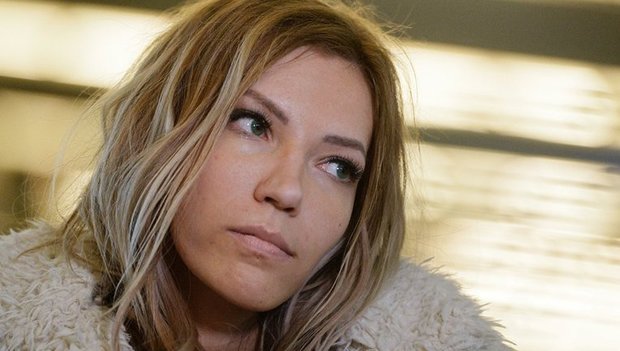
Photo: profi-news.ru
Russia is not going to participate in Eurovision this year that takes place in Kiev. Russian TV channels are also not going to broadcast the contest. This decision has been taken after Security Service of Ukraine banned a Russian singer Yulia Samoilova to enter the country. The situation is aggravated by the fact that Samoilova is wheelchair-bound. Security Service of Ukraine has banned her to enter the country for three years because she visited Crimea. But Russia is going to nominate Samoilova for Eurovision next year regardless of what country will host the contest.
The last news is that the organisers of Eurovision have offered the Russian singer to give the performance via video conference. The European Broadcasting Union has already sent a corresponding application to Channel One Russia responsible for Russian participation in the contest in 2017.
2. The jury ignored Lazarev (2016, Stockholm)
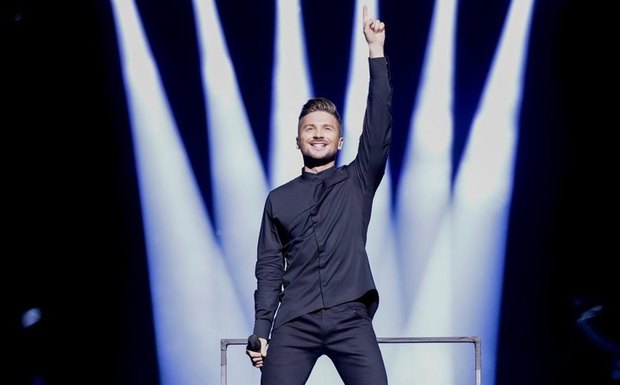
Photo: eurovision.tv
The winner of the audience voting at Eurovision 2016 was the Russian singer Sergey Lazarev, who performed the song You Are The Only One. However, last year there were rules according to which the votes of the jury were also taken into account. As a result, many jury members, in fact, ignored the performance of Lazarev: Russia did not receive a point from 20 out of 41 countries.
The winner became the Ukrainian singer Jamala, performing the song 1944 with the political implied sense: the deportation of those years was compared to the oppression of Crimean Tatars by Russia.
3. A spoiler from Stotskaya (2016, Stockholm)
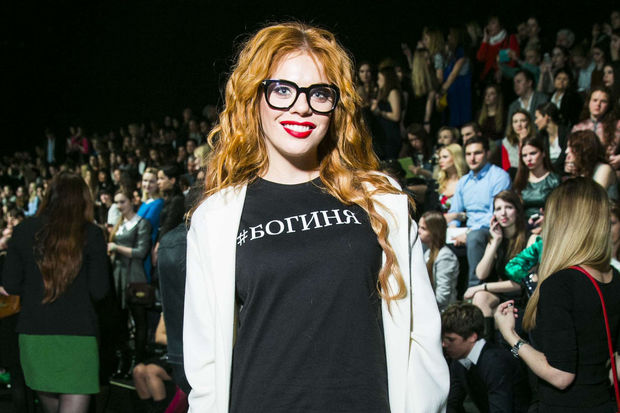
Photo: life.ru
The Russians remembered last year's Eurovision by one more scandal. By the finals of the contest, Anastasia Stotskaya was excluded from the members of the national jury: she posted on the Internet the rehearsal of the first semi-final. The organisers considered that it was a violation of the rules of secrecy because Stotskaya also commented on the performances of the representatives of the Netherlands and Armenia.
It is worth noting that a suspension of Stotskaya was suggested by the Russian broadcaster RTR. This was probably done in order a Russian singer Sergey Lazarev did not become a victim of the conflict.
4. Russia did not endorse the victory of Conchita Wurst (2014, Copenhagen)
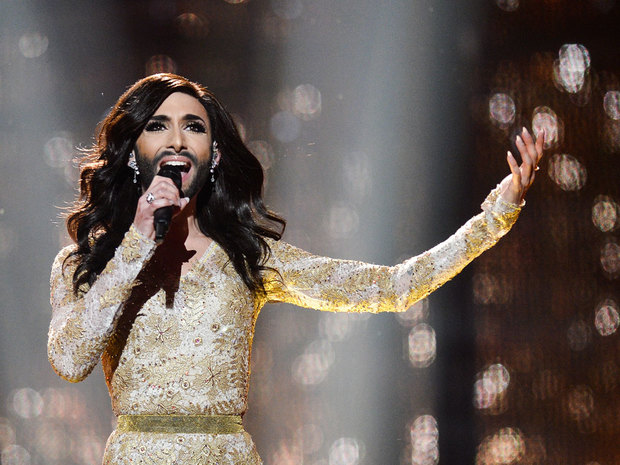
Photo: teleport2001.ru
Transvestite Conchita Wurst (Thomas Neuwirth) was the winner of Eurovision in 2014. Russian politicians spoke out against the singer and the song quite aggressively. Some critics considered the victory of the ''bearded woman'' ''for spite of Russia'' that underlines its commitment to traditional values. At some point, Russia even threatened that it would not participate in Eurovision-2015, but then still sent Polina Gagarina to the contest.
The Turks didn't like the victory of Conchita Wurst either — they even stated they would never participate in Eurovision again. The ruling party considered the image of the ''bearded woman'' as ''a slap on the side of Muslim traditions''.
5. Tolmachevy Sisters were booed (2014, Copenhagen)
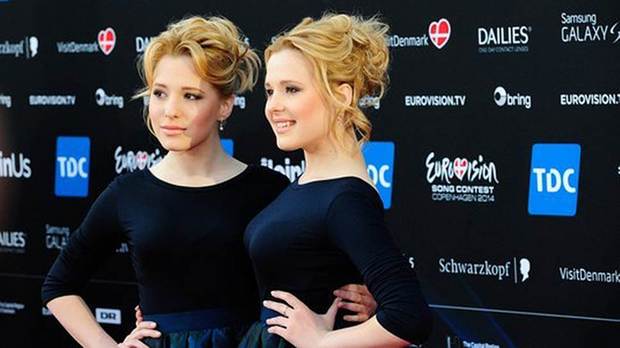
Photo: vk.com
By the way, in the same 2014, there was another political scandal with Russia. Sisters Masha and Nastya Tolmachevy sang a love song ( Shine), but some journalists found that it had a message to support joining of Crimea. The misunderstanding arose because of a line — Living on the edge, closer to the crime cross the line a step at a time, where the word ''crime'' was interpreted as ''Crimea''.
Another unpleasant event happened before the finals. During the announcement of the list of the winners at the semifinal stage, the audience booed Tolmachevy Sisters. It was also considered as a protest against the policy of Russia.
6. Dina Garipova was miscalculated (2013, Malmö)
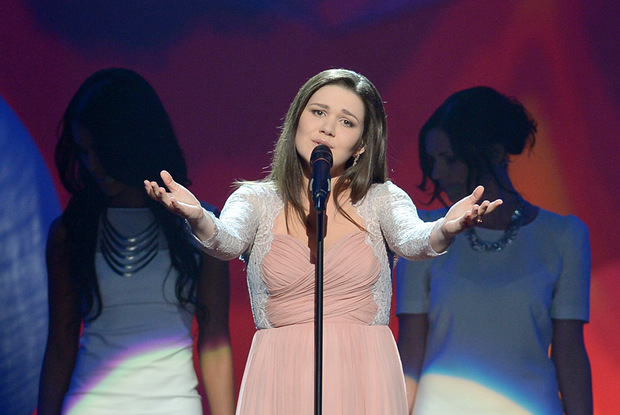
Photo: 1tvnet.ru
At the final vote counting it turned out that Dina Garipova, who took the 5th place in 2013, did not receive a single vote from Azerbaijan. However, this result was confusing for Azerbaijani side — in its version, Russia was to get from it not less than 10 points. The Minister of Foreign Affairs of the Republic of Azerbaijan Elmar Mammadyarov gave details of three telephone operators, according to which Russia was taking the second position after Ukraine, and called the incident ''a detective story''.
Earlier, Garipova was tried to be caught at plagiarism. Music critics saw similarities of her song What If, written by Swedish producers Gabriel Alireza and Joakim Bjornberg, with the hit Carried away by the British band Hear'say. Nevertheless, the fighters with plagiarism failed to remove the song of Dina Garipova from the competition.
7. Swear words on live air (2011, Düsseldorf)
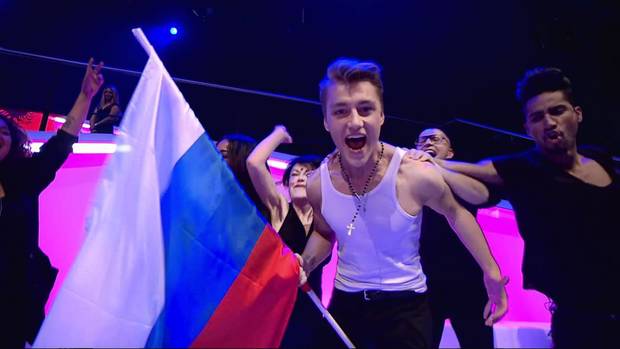
Photo: youtube.com
The performance of the Russian artist Aleksey Vorobyov at the semifinal concert in Düsseldorf ended with an incident.
''This is Russia, f****!'' directly into the camera shouted joyful Vorobyov after his performance. In the Russian broadcast, the obscene remark was removed, but of course, on the Internet there appeared the full version of the performance.
8. Georgian boycott (2009, Moscow)
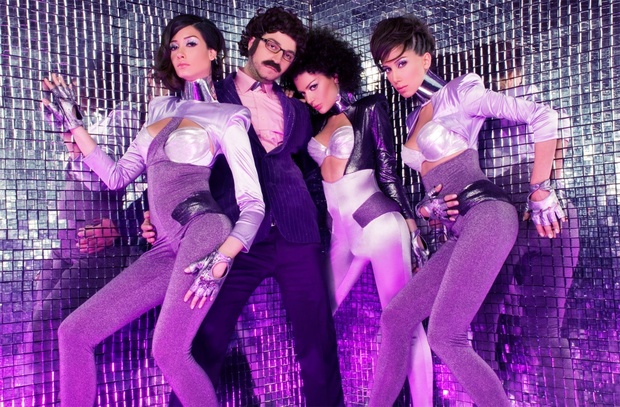
Photo: naitimp3.ru
In 2009, Georgia at Eurovision in Moscow was to represent the group Stefane and 3G. Thus, the participants bluntly stated that the song We don't wonna put in that they were going to perform was directed against the policy of Russia.
The European Broadcasting Union (EBU) demanded to amend the text of the song or to replace it. However, the Public Broadcaster of Georgia refused to do that and declared that Georgia would not participate at all.
9. Russians did not appreciate the song of Verka Serduchka (2007, Helsinki)
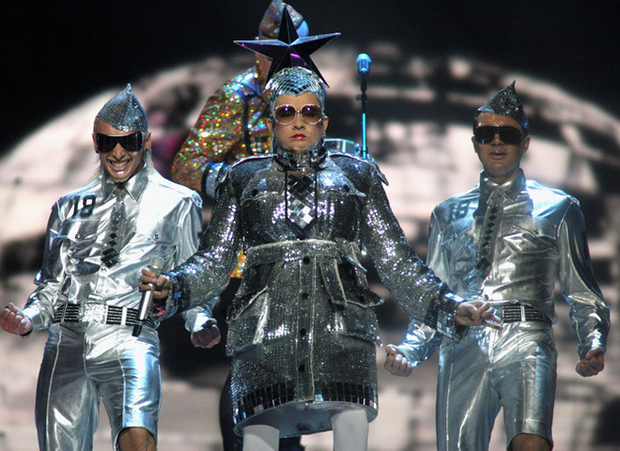
Photo: podrobnosti.ua
One of the reasons why Andrey Danilko (Verka Serduchka) became to lose popularity in Russia was his performance at Eurovision in 2007. Russian audience considered that at the end of the song he said ''Russia Goodbye'' instead of ''Lasha Tumbai''.
10. Russia stood up for t.A.T.u. (2003, Riga)
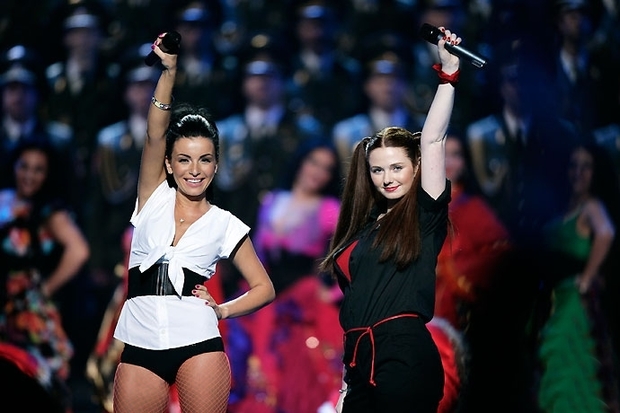
Photo: tele.ru
Chanel One Russia complained to the European Broadcasting Union (EBU) on Ireland, where the voting at the last moment was replaced by the voting of the national jury. The Russian side believed that this decision could affect the position of the group t.A.T.u., which then won the bronze. However, EBU did not consider the complaint.